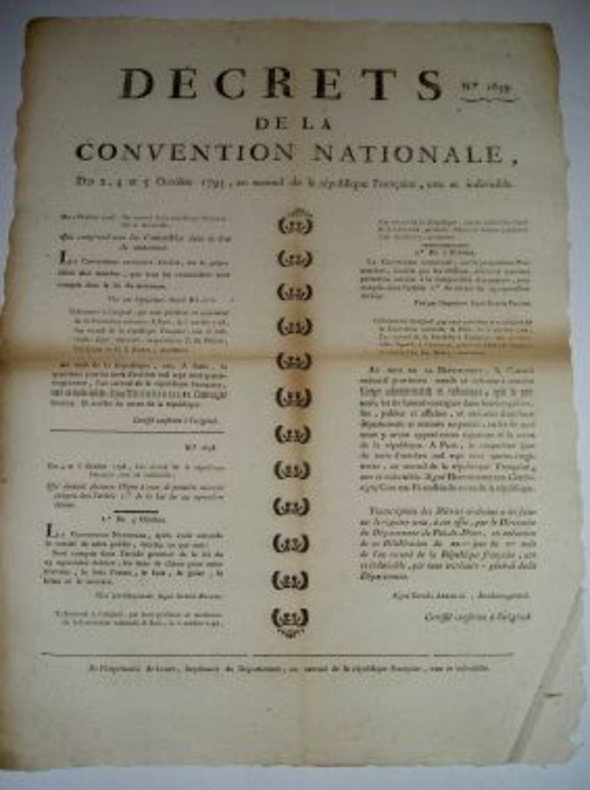
Poster announcing decrees of the National Convention
In September 1793 the National Convention, controlled by the Jacobins, passed a law to try to stop inflation, hoarding and shortage of basic products. The pressure put by the sans culottes and the Jacobin will of guaranting the right to survive of the population inspired the decision of intervening economy. The products considered essential were the following: fresh meat, salt meat and bacon, butter, sweet oil, cattle, salt fish, wine, brandy, vinegar, cider, beer, firewood, charcoal, coal, candles, lamp oil, salt, soda, sugar, honey, white paper, hides, iron, cast iron, lead, steel, copper, hemp, linens, woolens, stuffs, canvases, the raw materials which were used for fabrics, wooden shoes, shoes, turnips and rape, soap, potash and tobacco. The National Convention also established the maximum wages that had to be paid in the production of these goods and forbade exporting these goods as long as the war continued.
This law was an example of a well-intentioned idea which had bad results: many peasants hid their harvests to avoid selling them at lower prices and the same did merchants. Black market developed. The supply of products at low prices wasn´t assured and law could only be enforced with the threat of the guillotine. The effects of theis law could be compared to the ones the war communism policy had in Russia during the 1918-1921 Civil War.
No comments:
Post a Comment